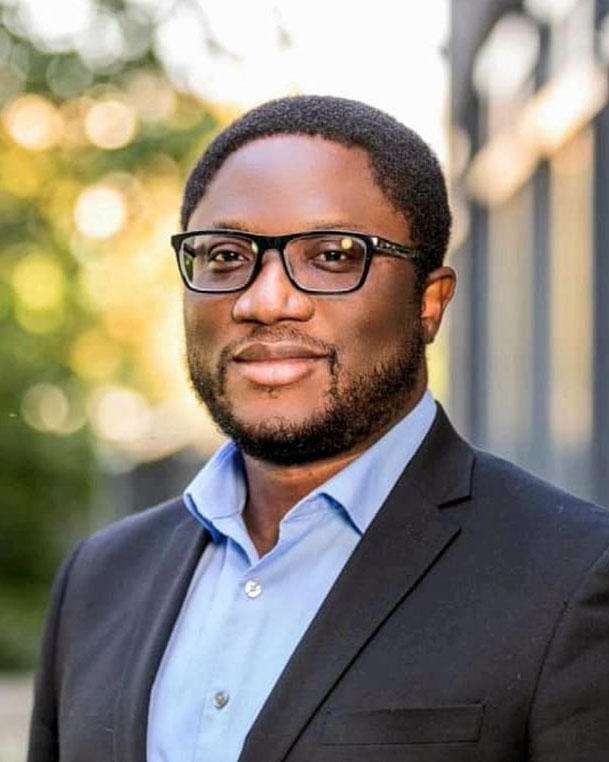Mustapha Abubakar Appointed Earl Stadtman Investigator
, by Elise Tookmanian, Ph.D.
In September 2022, Mustapha Abubakar, M.D., Ph.D., was appointed Earl Stadtman tenure-track investigator in the Integrative Tumor Epidemiology Branch (ITEB). Dr. Abubakar integrates state-of-the-art computational pathology methods with epidemiological studies to advance scientific understanding of the role of tissue ecosystem disruption in the etiology, natural history, and clinical outcomes of screen-detectable cancers.
Integrating computational pathology and epidemiology to uncover tissue biomarkers
In his work on breast biopsy tissue, initiated during his fellowship, Dr. Abubakar applied machine-learning computational pathology algorithms to epidemiologically annotated tissue samples. Using this integrative approach, he identified histologic Epithelium-to-Stroma Proportion (histologic-ESP), as a novel predictive tissue biomarker of subsequent invasive breast cancer development among women with benign breast disease (BBD), particularly among those with non-proliferative BBD (~70% of BBD patients). BBD is an important and common risk factor for breast cancer, though not all women with BBD go on to develop cancer; as such, predictive biomarkers are needed. Dr. Abubakar’s results offer etiologic clues and, with validation, may inform risk stratification and clinical management of BBD patients.
Continuing with this approach, Dr. Abubakar developed machine-learning algorithms to spatially characterize invasive breast cancer from archival tissue images taken from three independent and ethnically diverse study populations. With these data, he uncovered Tumor-associated Stromal Cellular Density (Ta-SCD) to be strongly and independently predictive of survival outcomes among patients with luminal breast cancer. Ta-SCD provided significantly more prognostic information than many standard clinicopathological and molecular characteristics. As a tenure-track investigator, Dr. Abubakar will continue to investigate the contribution of disruptive changes in the tissue ecosystem to risk, progression, treatment response, and clinical outcomes for breast cancer.
Expanding Research Across Multiple Malignancies
Through improving tissue characterization using machine-learning algorithms and state-of-the-art staining methodologies, Dr. Abubakar aims to uncover relationships between tissue-based features and risk for screen-detectable cancers of the breast, colorectum, prostate, and lung in diverse populations. “With the increase in cancer screening programs around the world, benign and precursor lesions are more likely to be observed by biopsy,” said Dr. Abubakar. “By studying the natural history of cancer through computational pathoepidemiology, we hope the features of these biopsies can inform cancer prevention and clinical decision-making.” He will leverage DCEG resources, including the Molecular and Digital Pathology Laboratory and epidemiologically-annotated tissue collections, to reach this goal.
Dr. Abubakar earned his medical degree from Bayero University, Kano, Nigeria and trained as a pathologist in the Department of Pathology, Aminu Kano Teaching Hospital, Nigeria. He obtained his M.Sc. in epidemiology from the Imperial College London and his Ph.D. in molecular epidemiology, with a concentration in computational pathology and epidemiology, from the University of London’s Institute of Cancer Research (ICR): Royal Cancer Hospital, London, United Kingdom. He joined DCEG in 2017 as a postdoctoral fellow, was promoted to a research fellow in 2020, and was selected for the NIH Distinguished Scholars Program in 2022.
